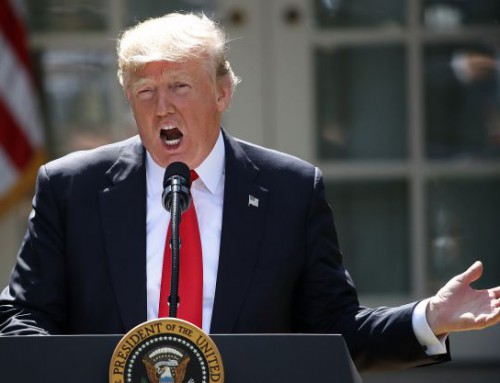Is America governable? That is no longer a bizarre or even a silly question. America faced existential danger during the Revolution, Civil War and the Great Depression and times of great distress and anger such as during the Vietnam War and the assassinations of Robert Kennedy and Martin Luther King, Jr. in 1968. Yet, government still functioned. That is no longer the case. The past four or five decades have resulted in excessively politicized politics that are now crippling the ability to govern.
Since the early days of the Vietnam War culminating with the 2016 elections in which both presidential candidates had hugely unfavorable ratings among the electorate, politics have been driven to and controlled by extremes of left and right. Gerrymandering electoral districts to maintain party control and the influence of money are likewise making polarization seemingly irreversible accelerated by talk radio and cable news. Roughly three-quarters of Americans no longer trust the government to govern and believe that the future will not be better for coming generations.
An anecdotal example: my brother is a successful financial manager and investor in New York State. His three grown children attended the finest undergraduate universities and graduate schools in the country. Each is on a successful path in their respective endeavors. All three and his wife are strongly pro-Clinton Democrats and viscerally and irrationally anti-Trump. My brother, once a registered Republican, has seen the light and is now an independent.
The other side harbors exactly opposite views. Extremely hostile to Hillary Clinton, Trump is regarded as a powerful force necessary for change in “draining the swamp” in Washington and turning America toward a more positive direction. How such well-educated and highly intelligent people can have such divergent, emotional and powerfully charged views plays out in Congress, which is a macrocosm of these seemingly unbridgeable ideological divides.
In the coming 10 days, Congress must resolve budget and immigration impasses broadly defined. Immigration entails not only DACA. Building a wall, better called border security, sorting out chain immigration that allows relatives of immigrants to enter America, and the visa lottery system to allow immigration from smaller states are part of this debate. The chances that Congress will resolve these issues satisfactorily is about zero before or after the looming deadline to renew spending.
And there are other issues that will test if not immobilize the ability of government to govern. Consider these possibilities. Suppose the White House decides to abrogate the Joint Comprehensive Plan of Action (JCPOA) with Iran. What is Plan B? And what if Iran responds in kind? Or suppose the administration launches a pre-emptive attack against North Korea without advance congressional approval. Would that provoke a constitutional crisis as a catastrophic war on the Korean peninsula was being waged?
Second, suppose that the White House fires Special Counsel Robert Mueller or that he quits? Or suppose that Mueller produces sufficient evidence and proof that team Trump broke the law through obstruction, perjury, money laundering or some other potential criminal action? Would a Republican Congress act? And if the House shifted control after the 2018 elections, how would that play out?
Finally, suppose allegations of hush money being paid to a pornographic movie actress just prior to the 2016 election to keep her silence over an affair with the president prove to be valid? Would that be addressed or ignored by a Republican majority in Congress? Each of these scenarios would further cripple its ability to govern.
Can a system of checks and balances created by the finest minds of the 18th century work in the 21st? This may be the greatest challenge the nation has faced since the Cold War. And it may not be up to the task.
None of this remotely suggests that the United States will implode as did the Soviet Union. Nor does it mean that even with a broken government will most Americans not be able to get on with their lives. What it does mean is that the American promise will be suspended for all but a fortunate few and that its global prestige and leadership will be in free fall.
This is not yet a life threatening political form of cancer. But unchecked, it will be. The critical questions are whether anyone is listening and will anyone act to dampen the extreme polarization between left and right that is crippling the government’s ability to govern?






Comenteaza